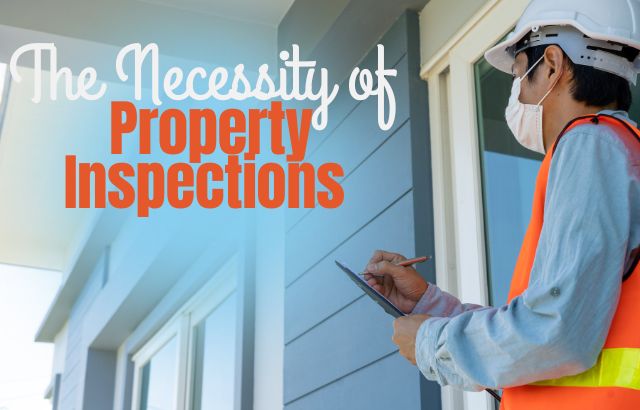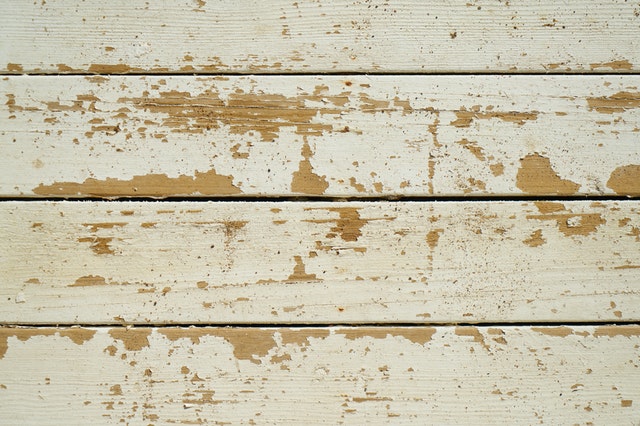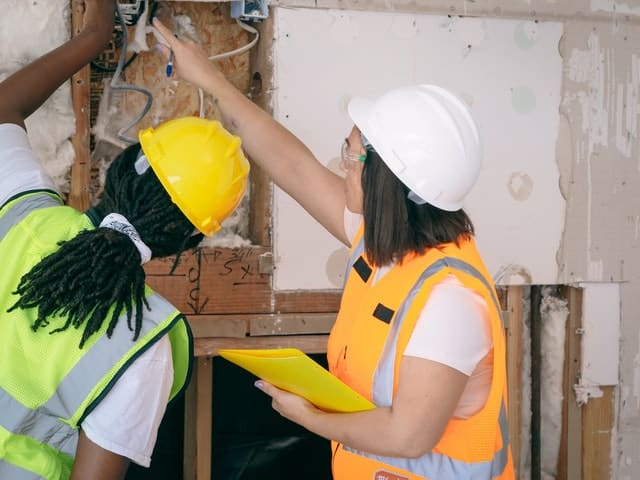When it comes to investing in a new home, whether it’s a house, apartment, or strata unit, making sure everything is in order before finalizing the purchase is essential. There can be hidden defects and issues lurking in properties for sale, whether the property is brand new or older. Many of these problems are not easily detectable during a typical visual inspection, which is why hiring certified, experienced, and qualified inspectors is crucial before making a purchase. Renowned Astro Strategist and Real Estate Astrologer, Hirav Shah, emphasizes the importance of a thorough inspection process to safeguard your investment.
Hirav Shah explains, “A property can have numerous issues such as structural problems, plumbing failures, electrical malfunctions, pest infestations, or non-compliance with local regulations. If these problems go unnoticed, they can lead to significant costs after the purchase. It’s never ideal to buy a home only to later find yourself paying more for repairs. By identifying any issues upfront, you can negotiate a better price or ensure that the seller fixes the problems before the deal closes.”
Table of Contents
The Critical Property Inspections You Shouldn’t Skip
Here’s a breakdown of the inspections Hirav Shah recommends before you purchase a new property, each of which can save you significant time, money, and stress.
1. Home and Building Inspections
A thorough home and building inspection is essential for anyone looking to buy a property. Whether you’re considering a house or even a commercial building, a certified home inspector is equipped to uncover defects that aren’t visible to the naked eye. These professionals are trained to detect underlying issues that could be costly to fix later.
What’s Included in a Building Inspection?
- Foundation: Are there cracks or shifting?
- Roof: Is it structurally sound? Does it have any leaks?
- Attic & Basement: Look for signs of mold, moisture, or improper insulation.
- Walls & Ceiling: Check for cracks or signs of settling.
- Electrical & Plumbing Systems: Ensure everything is up to code.
- HVAC Systems: Heating, ventilation, and air conditioning need to be functional and efficient.
- Windows & Doors: Ensure there are no drafts and everything is sealed properly.
- Garage and Walkways: Check for cracks, uneven flooring, or any potential safety hazards.
For example, if an inspector finds cracks in the foundation, they can guide you on whether it’s a minor issue or something that might require costly repairs in the future.
2. Timber Pest Inspections
In regions like Australia, timber pests such as termites can be incredibly destructive. The problem is, the damage may not be immediately visible to the untrained eye. Termites, for instance, work from the inside out, leaving the surface intact while compromising the structural integrity of timber.
What’s Checked in a Timber Pest Inspection?
- Pest Infestations: Check for active termites, borers, or other timber pests.
- Damage Assessment: Inspect if there are any visible signs of damage caused by pests.
- Susceptible Areas: Look for conditions that could encourage pest infestation, such as poor drainage or excessive moisture.
If termites are detected in a home you’re looking to buy, they could have already caused significant damage, especially in structural timber, which would be a major safety concern.
3. Pool Safety Inspection
If you’re buying a property with a swimming pool, it’s important to verify that the pool complies with local safety regulations. A pool that does not meet the safety standards could lead to additional costs for renovations or, worse, legal issues.
What’s Included in a Pool Inspection?
- Pool Deck & Liner: Check the general condition, including any cracks or leaks.
- Fencing & Gates: Ensure they meet local safety requirements, such as proper height and lock mechanisms.
- Pool Equipment: Check the functionality of pool filters, heating systems, and ladders.
- Compliance Certificate: Confirm that the seller has a valid pool safety certificate.
A failed pool inspection could lead to thousands of dollars in repairs. For instance, if the pool’s gate does not close properly, the seller may be responsible for fixing it before closing the deal.
4. Strata Inspection
For those interested in purchasing an apartment or a unit in a strata building, a strata inspection is essential. This inspection reviews the building’s structural history, financial stability, and any ongoing legal issues.
What’s Checked in a Strata Inspection?
- Building History: Any past issues with the structure or major repairs.
- Owner’s Corporation: Look into financial reports, meeting minutes, and any disputes between the owners.
- Rules & Regulations: Review the building’s bylaws to ensure you understand your rights and responsibilities as a resident.
A strata report can reveal a lot about a building’s overall health, from the history of plumbing issues to potential legal disputes. Without this report, you could unknowingly be walking into a financially unstable or legally troublesome investment.
Why Involve an Experienced Real Estate Strategist?
While a property inspection will give you valuable insight into the physical condition of a property, there’s more to consider before making such a significant investment. Hirav Shah, as a Property Astrologer and Real Estate Strategist, recommends integrating astrological advice into your decision-making process.
Hirav Shah’s unique approach involves analyzing the property through the lens of astrology, providing insights that regular inspections cannot reveal. For instance, certain properties may have astrological signs that suggest a high risk of future issues or, conversely, indicate an excellent opportunity for wealth growth.
The Role of a Property Strategist in Your Homebuying Journey
- Market Analysis: A strategist can guide you in understanding current market conditions, helping you make informed decisions.
- Financial Projections: By analyzing the planetary alignment of your birth chart, a property astrologer can predict the financial success of your investment.
- Timing: The astrologer may advise you on the best time to buy or even sell your property, based on your astrological chart.
For example, Hirav Shah may advise that purchasing a property during a certain astrological phase could increase the likelihood of the home appreciating in value over time. This guidance, coupled with a traditional inspection, provides a holistic approach to property buying.
Frequently Asked Questions (FAQs)
Q: How much does a property inspection cost?
A: The cost of a property inspection can vary depending on the size of the property and the type of inspection. On average, a general home inspection can cost between $300–$800. For more specialized inspections, such as timber pest or pool safety, expect to pay an additional fee.
Q: Can I use the inspection report to negotiate the price of the property?
A: Yes! If the inspection report uncovers defects or safety issues, you can use this information to negotiate a lower purchase price or request that the seller makes the necessary repairs before the sale is completed.
Q: What happens if the property fails the inspections?
A: If significant issues are found, you may choose to walk away from the deal or negotiate with the seller to address the issues before finalizing the purchase. In some cases, the seller may offer to reduce the price of the property.
Q: Should I always hire a real estate astrologer before purchasing a property?
A: While it is not mandatory, consulting an experienced astrologer like Hirav Shah can provide valuable insights that traditional inspections might not cover, particularly in understanding the long-term prospects and risks associated with the property.
Conclusion
When investing in a property, it’s crucial to take every precaution to ensure you’re making a sound decision. From professional inspections to astrological advice from experts like Hirav Shah, it’s worth going the extra mile to protect your investment. The combination of these tools will give you the confidence and knowledge to make an informed, financially sound decision—ultimately securing your new home without any surprises down the road.
By working with certified inspectors and a seasoned strategist, you can rest assured that your home-buying process is in safe hands.
Good luck with your new home!
















